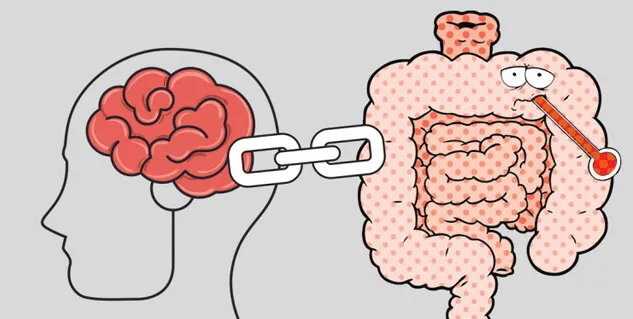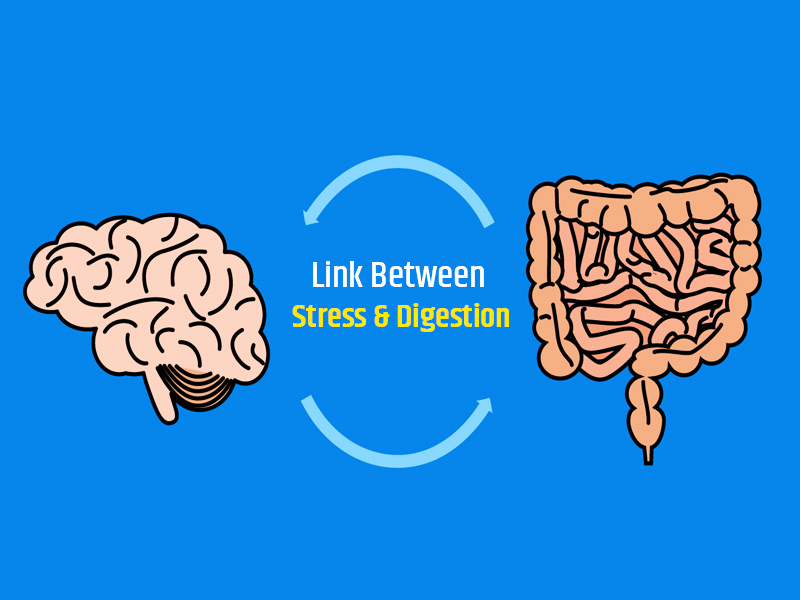
Have you ever felt that nervous churn in our belly prior to an important presentation, or the uncontrollable need to go to the bathroom when we feel anxious. Well, science suggests that it's more than a coincidence and it's an example of the strong connection between our brain and our gut. Stress is an unwanted presence in the fast-paced lives of many today, and it’s leading to major contribution causing or increasing the problems in our digestive system.
Table of Content:-
We got in touch with our expert, Dr Bhumesh Tyagi, Consultant, General Medicine and Physician, Shardacare, Health City, Noida, and he explained to us the connection between stress and digestive issues. Here is what he shared with us.
Link Between Stress and Digestive Issues
At the core of this relationship is what scientists have termed the gut-brain axis. This complex network of communication between the central nervous system (your brain and spinal cord) and the Enteric Nervous System (ENS), also referred to as the second brain, which lines your entire gastrointestinal tract. These two systems are constantly communicating with one another, but with influences by hormones, neurotransmitters, and even the large population of microbes that reside in your gut.
W’hen you are stressed, the brain engages the fight or flight response. It causes the body to release stress hormones such as cortisol and adrenaline. Although these hormones play an important role in short-term survival, long-term exposure can greatly affect your digestive system,” Dr Tyagi explained.
Also Read: Doctor Lists 5 Diet Mistakes that Can Worsen Fatty Liver

How Stressors Appear in Your Gut
The mechanisms by which stress disrupts digestion vary and may impact different people differently. The following are some of the general ways stress can lead to digestive disturbances:
1. Increased Gut Motility (Diarrhea)
Stress may accelerate the transit of food through the intestines, resulting in increased frequency of bowel movements and even diarrhea. This is usually a result of enhanced activity of the vagus nerve, an important part of the gut-brain axis.
2. Delayed Gut Motility (Constipation)
In a few, however, stress delays gut transit time, leading to constipation. This may be associated with the redirection of blood from the GI tract during stress, or shifts in neurotransmitter activity.
3. Irritable Bowel Syndrome (IBS) Flares
IBS is a prevalent condition with abdominal discomfort, bloating, gas, diarrhea, and/or constipation. Stress is a well-documented precipitant of IBS symptoms, tending to complicate underlying conditions. The increased gut sensitivity seen in IBS subjects makes them extremely vulnerable to stress-induced flares.
4. Inflammatory Bowel Disease (IBD) Exacerbation
Diseases such as ulcerative colitis and Crohn's disease (IBD) are long-standing inflammatory diseases of the gastrointestinal tract. Stress may not cause IBD, but it definitely exacerbates symptoms and even activates relapses in those who have already been diagnosed with the condition. The immune system, which is very central to IBD, is very susceptible to stress.

5. Acid Reflux and Heartburn
Stress might stimulate the stomach to produce more acid, causing acid reflux and heartburn symptoms. Stress might also relax the esophageal sphincter, permitting stomach acid to back up into the esophagus.
6. Nausea and Vomiting
In a few situations, extreme stress can even cause the sensation of nausea and, in extreme cases, vomiting. It is usually an excessive expression of the gut-brain axis response to subjective threat.
7. Gut Microbiota Changes
New research indicates that ongoing stress might change your gut microbiota composition and diversity, the trillions of bacteria and other microbes that inhabit your intestines. If these microbes become out of balance, a situation referred to as dysbiosis, it is associated with several digestive as well as systemic health issues.
Bottomline
The complicated relationship between your brain and your belly is undeniable. Seeing that stress has a very real effect on your gut health is where it all starts to take control. By putting stress management first and taking a comprehensive approach to your overall health, you can develop a healthier, happier belly and live a more comfortable, healthier life.
Also watch this video
How we keep this article up to date:
We work with experts and keep a close eye on the latest in health and wellness. Whenever there is a new research or helpful information, we update our articles with accurate and useful advice.
Current Version